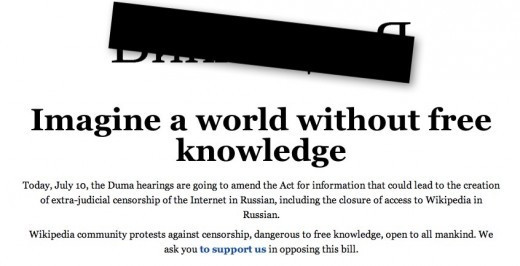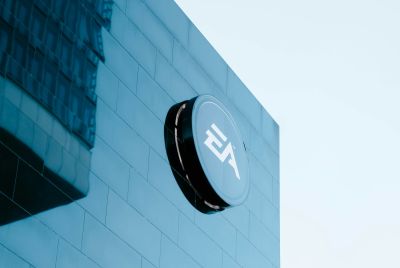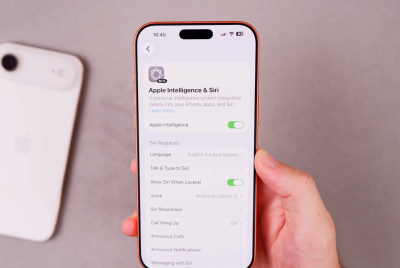Wikipedia Russia Goes Dark in Protest Over Web Censorship [VIDEO]
The Russian version of Wikipedia has gone dark and will remain unavailable to users for a week in protest over proposed legislation that would create a blacklist of websites banned by the government.

The website closed on 10 July, the day that the State Duma is expected to vote on an amendment to Russia's 'Act for Information' which, if passed in its current form, will create a federal agency tasked with maintaining a list of banned websites.
Russian courts, along with the agency, would have the power to add websites to the banned list if the content of them is believed to be extremist, offensive or illegal.
Wikipedia has likened the policy to China's "great firewall" and is asking users to share this page of its Russian site to raise awareness.
Wikipedia said, translated by Google: "Wikipedia in Russian July 10 will be closed by a decision of the community to protest against the proposed amendments to the law "On Information", the discussion which takes place on this day in the State Duma of the Russian Federation.
"These amendments may become the basis for a real censorship on the Internet - generate a list of banned sites and IP-addresses with subsequent filtration...We ask you to support us in the fight against this bill."
The website adds that, if the bill is passed, then the worst-case scenario would be that access to Wikipedia and other such sites would be blocked across the country.
Despite receiving strong criticism from human rights activists and internet providers - who see it as an attempt to censor the internet - the proposed bill has already been endorsed by all four parties in the State Duma.
Those against the bill - which has received similar criticism to the hugely controversial SOPA and PIPA bills in the US and Europe - say that it would be an ineffective tool to police the internet, as those providing illegal content could simply move their site to a new domain or IP address.
In early July, Russia's Human Rights Council branded the bill as a burden to the country's RuNet network and claimed it would "negatively affect RuNet's speed, stability and security."
Wikipedia led a similar blackout in protest against SOPA and PIPA across the US and Europe when it, along with thousands of other websites, 'went dark' for 24 hours to demonstrate what the internet would look like if the new laws were passed.
Then, Wikipedia and others were successful in having the bills scrapped, but it remains to be seen if the same can be done in Russia, where the bill passed its first reading on 6 July, and if the second reading on 11 July is passed then a third and final reading will take place on an as-yet unknown date.
© Copyright IBTimes 2025. All rights reserved.






















